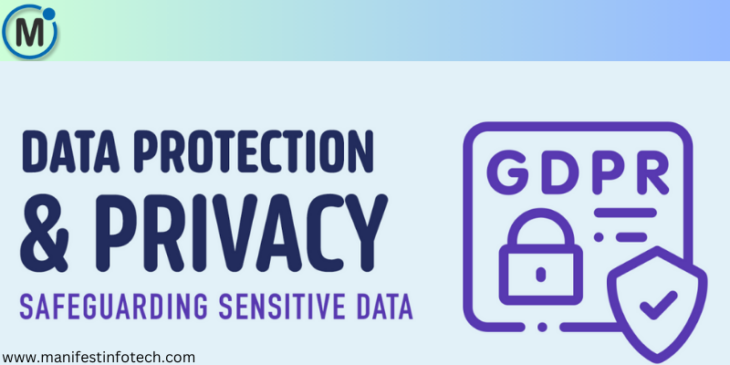
In an era where data is the new currency, protecting personal and sensitive information has become a critical concern for individuals, businesses, and governments alike. Data privacy regulations have been enacted globally to ensure that organizations handle data responsibly and securely. Understanding these regulations and implementing best practices can help businesses stay compliant while fostering trust with their users.
Understanding Data Privacy Regulations
Several data privacy laws have been implemented worldwide to protect user information and ensure transparency in data handling. Some of the most significant regulations include:
1. General Data Protection Regulation (GDPR)
Implemented in 2018, the GDPR is a European Union (EU) regulation designed to protect the personal data of EU citizens. It requires businesses to obtain explicit user consent before collecting data, provide users with access to their data, and ensure robust security measures to prevent breaches. Non-compliance can result in hefty fines.
2. California Consumer Privacy Act (CCPA)
The CCPA, enacted in 2020, provides California residents with greater control over their personal information. It grants users the right to know what data is being collected, opt out of data sales, and request the deletion of their information. Businesses that fail to comply may face legal consequences.
3. Personal Data Protection Act (PDPA) – Singapore
Singapore’s PDPA governs the collection, use, and disclosure of personal data. It emphasizes obtaining consent, ensuring data security, and providing individuals with access to their personal information.
4. Health Insurance Portability and Accountability Act (HIPAA)
HIPAA is a U.S. regulation that protects health information. It mandates healthcare organizations to maintain confidentiality, implement security measures, and ensure compliance with data protection standards.
Best Practices for Data Privacy
To comply with data privacy regulations and ensure secure data handling, organizations must adopt best practices that align with legal requirements. Below are some key strategies:
1. Implement Strong Security Measures
Using encryption, firewalls, and multi-factor authentication (MFA) helps protect sensitive data from cyber threats. Regularly updating software and security protocols can mitigate vulnerabilities.
2. Conduct Regular Data Audits
Businesses should periodically review their data collection, storage, and processing activities. Identifying and addressing potential risks helps maintain compliance and security.
3. Minimize Data Collection
Organizations should collect only the necessary information required for their operations. Reducing data collection limits exposure in case of a breach.
4. Ensure Transparency with Users
Clearly communicating data policies, obtaining user consent, and allowing individuals to control their information builds trust and enhances compliance.
5. Train Employees on Data Privacy
Employees should be educated on data protection policies and potential threats such as phishing and social engineering attacks. Proper training ensures they handle information responsibly.
6. Develop a Data Breach Response Plan
Having a well-defined response plan in case of a data breach enables businesses to act swiftly, notify affected users, and minimize damages.
Conclusion
Data privacy is an essential aspect of modern digital interactions. By understanding global regulations and implementing best practices, businesses can safeguard user information, maintain compliance, and build a reputation of trust. As technology evolves, staying informed and proactive in data protection efforts will be key to ensuring privacy and security in the digital age.
If you are looking for any services related to Website Development, App Development, Digital Marketing and SEO, just email us at nchouksey@manifestinfotech.com or Skype id: live:76bad32bff24d30d
𝐅𝐨𝐥𝐥𝐨𝐰 𝐔𝐬:
𝐋𝐢𝐧𝐤𝐞𝐝𝐢𝐧: linkedin.com/company/manifestinfotech
𝐅𝐚𝐜𝐞𝐛𝐨𝐨𝐤: facebook.com/manifestinfotech/
𝐈𝐧𝐬𝐭𝐚𝐠𝐫𝐚𝐦: instagram.com/manifestinfotech/
𝐓𝐰𝐢𝐭𝐭𝐞𝐫: twitter.com/Manifest_info
#DataPrivacy #CyberSecurity #Compliance #PrivacyRegulations